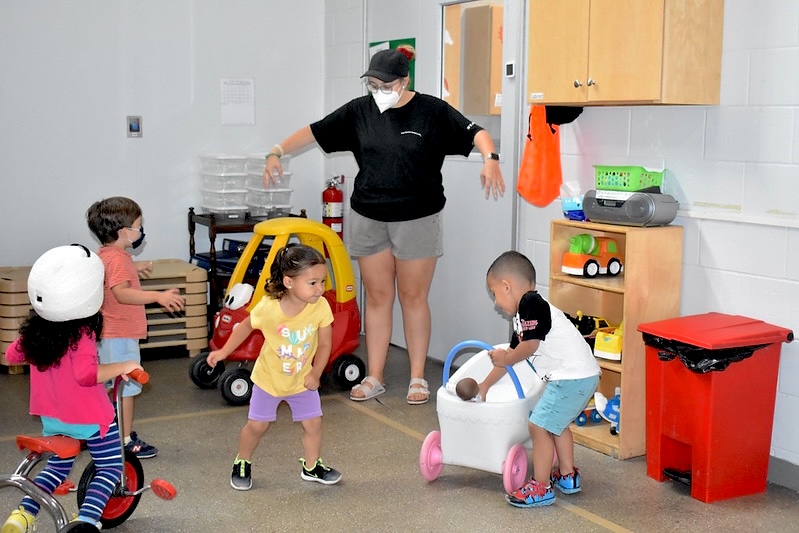
During the early part of the pandemic, the federal government supported child care providers by funding crucial stabilization grants, known, in Massachusetts, as the Commonwealth Cares for Children or C3 grants.
Now the Massachusetts Taxpayers Foundation (MTF) has released a new chartbook that looks at the impact of these grants — and how important it is to maintain this support, calling the grants an “engine of systemic change.â€
“C3 was launched in July 2021,†the chartbook explains, “and the first year was funded at $418 million completely through federal funds, using child care stabilization funds (ARPA) and then supplemental child care development block grant funds, (CRRSAA).â€
The funding helped early childhood programs serve more children, pay higher wages that helped retain staff, cover other operating costs, and make improvements. This funding also kept programs open and made child care more affordable for families.
In year two, C3 grants were funded through a mix of federal state funds. Now, Massachusetts has taken over full responsibility for funding these grants, investing $475 million.
“C3 grants represent the biggest change in how Massachusetts has funded early education and care in decades,†Victoria Bergeron says. She’s the MTF policy researcher who compiled the chartbook. “The grants have shifted how providers interact with the state and how the state thinks about its role in the sector’s stability.â€
“Massachusetts is the only state to have continued stabilization grants at these levels since federal pandemic funding expired. This has meant that providers have not had to shift costs to families.â€
Providing this kind of financial protection for families is essential. As the chartbook says, “Massachusetts has the highest child care costs among the 50 states, with infant care costing, on average, over $20,000 a year.â€
“Despite the high cost of care, child care educators and staff are among the lowest paid workers in education. Federal data shows that, in 2021, the state’s median child care worker earned $14.98 an hour, around $34,920 annually.
“Furthermore, MTF’s research on the untold costs of child care estimates that due to inadequate child care, Massachusetts loses roughly $2.7 billion each year in lost earnings for employees, additional costs and lower productivity for employers, and fewer tax revenues for the state.â€
In addition, Bergeron explains, a key aspect of C3 grants is their “universality and flexibility.†C3 grants “complement other sources of funding†and can be tailored to meet providers’ individual needs. The grants also address the needs of “providers serving low-income or otherwise under-resourced communities.â€
There is, however, much more work to be done.
“Especially in a time of fiscal transition for state revenues,†Bergeron says, “stability and predictability in funding is incredibly important to early education and care providers who continue to serve our state’s children and families under difficult market conditions.â€
And while C3 grants have helped boost the licensed capacity of the state’s child care system so that it “exceeds pre-pandemic levels,†it is also true that “about 1/3 of providers are unable to serve their full license capacity. The most cited reason was unfilled staff openings.â€
Governor Maura Healey has taken a key step forward by calling for another $475 million in her fiscal year ’25 budget.
MTF supports this funding level and calls for codifying C3 grants in state law “to provide consistency and future stability for child care providers, and remain committed to the universality of the program.â€
MTF also recommends evaluating the C3 grant formula “to make sure that the goals of equity and supporting our most vulnerable communities remain centered.†And MTF says Massachusetts should consider how “C3 can be used to incentivize support for the early education workforce with special focus on wages, benefits, career path, and the needs of different providers.â€
To learn more, check out the chartbook.

